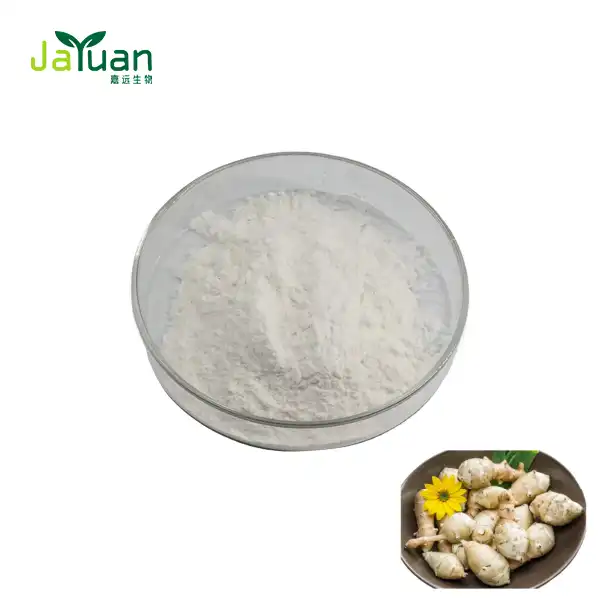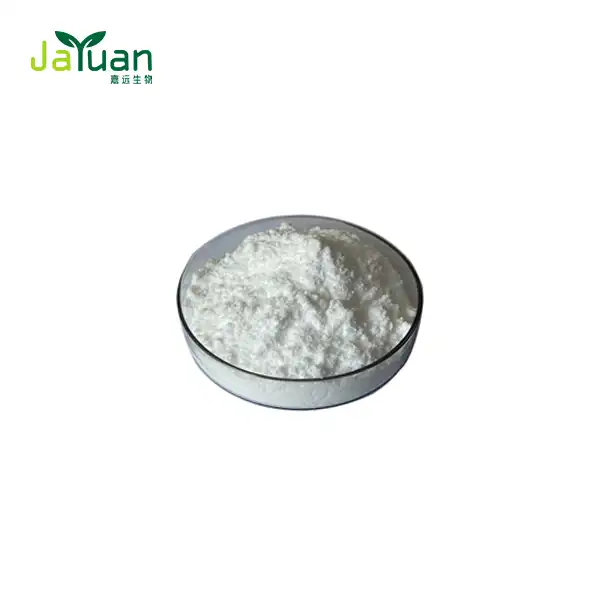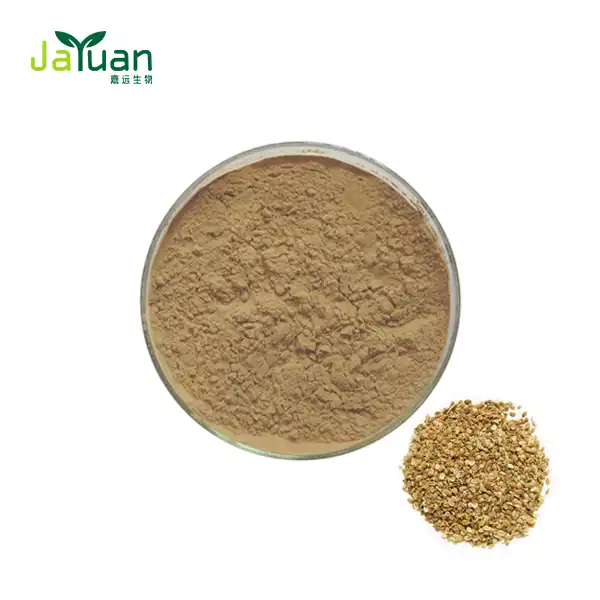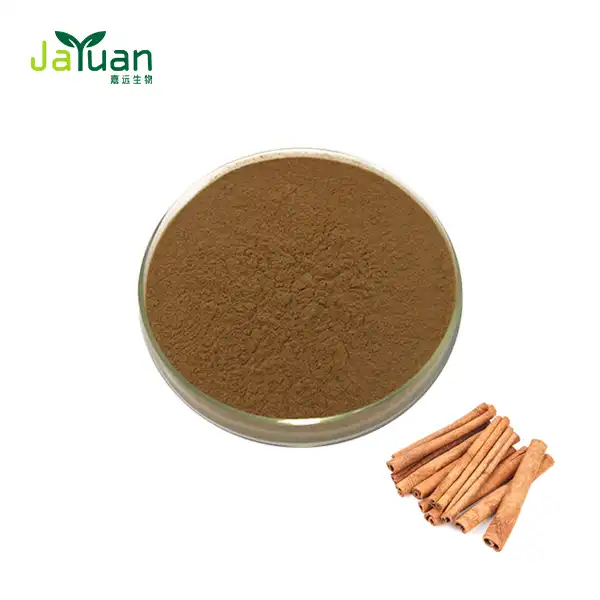Are Zein Peptides Safe for Dietary Supplements?
As the demand for plant-based protein sources continues to grow, zein peptides have gained attention in the dietary supplement industry. Derived from corn, these unique proteins offer potential benefits for consumers seeking alternative protein options. However, questions about their safety and regulatory status persist. In this comprehensive guide, we'll explore the safety profile of zein peptides in dietary supplements, examining their regulatory status, clinical studies, and potential allergen concerns.

FDA-Approved? Regulatory Status Explained
When it comes to the regulatory status of zein peptides in dietary supplements, it's essential to understand the framework established by the U.S. Food and Drug Administration (FDA). While zein itself has been recognized as Generally Recognized as Safe (GRAS) for certain food applications, the regulatory landscape for zein peptides in dietary supplements is more nuanced.
The FDA does not "approve" dietary supplements in the same way it does prescription drugs. Instead, manufacturers are responsible for ensuring the safety of their products before marketing them. However, the FDA does regulate dietary supplements under a different set of regulations than those covering conventional foods and drug products.
Under the Dietary Supplement Health and Education Act (DSHEA) of 1994, manufacturers must ensure that their products are safe before they are marketed. The FDA has the authority to take action against any unsafe dietary supplement product after it reaches the market. This post-market approach means that while zein peptides may be used in dietary supplements, their safety is ultimately the responsibility of the manufacturer.
It's worth noting that zein has been used in various food applications for years, which may lend credence to its safety profile. The FDA has affirmed zein as GRAS for use as a surface-finishing agent for candy, nuts, and fruits, as well as a component in food-packaging materials. This GRAS status, however, does not automatically extend to the use of zein peptides in dietary supplements.
Manufacturers of dietary supplements containing zein peptides powder must comply with current Good Manufacturing Practices (cGMPs) as outlined by the FDA. These regulations ensure that dietary supplements are produced in a quality manner, do not contain contaminants or impurities, and are accurately labeled. Compliance with cGMPs is a crucial aspect of ensuring the safety of zein peptides in dietary supplements.
While the regulatory status of zein peptides in dietary supplements may not be as straightforward as an FDA approval, the existing framework provides a basis for their use. Manufacturers must conduct their due diligence to ensure the safety of their products, and consumers should be aware of the regulatory context when considering supplements containing zein peptides.

Clinical Studies: Any Reported Side Effects?
To survey the security of zein peptides in dietary supplements, it's significant to look at accessible clinical ponders and logical writing. Whereas investigations particularly centered on zein peptides in supplement frames are restricted, thinking about zein and its subsidiaries gives important bits of knowledge into their potential impacts on human health.
One range of investigations has centered on the utilization of zein as a conveyance framework for bioactive compounds.
A think about distributed in the Diary of Rural and Nourishment Chemistry explored the epitome of nutraceuticals utilizing zein nanoparticles. The analysts found that zein nanoparticles seem successfully secure and convey bioactive compounds, recommending potential applications in utilitarian nourishments and dietary supplements. Critically, they think about did not report any critical unfavorable impacts related to the utilization of zein.
Another ponder, distributed in the Universal Diary of Pharmaceutics, inspected the utilization of zein microspheres for verbal sedate delivery. The analysts famous that zein-based details appeared promising comes about in terms of bioavailability and controlled discharge of dynamic compounds. Whereas this consideration was not particularly centered on dietary supplements, it gives experiences into the security profile of zein when utilized as a carrier material. In terms of potential side impacts, the accessible writing proposes that zein peptides are by and large well-tolerated.
However, it's vital to note that personal reactions can change, and a few individuals may encounter gentle gastrointestinal inconveniences when presenting unused protein sources into their diet.
An audit article distributed in Comprehensive Audits in Nourishment Science and Nourishment Security highlighted the potential of zein as a utilitarian fixing in nourishments and nutraceuticals. The creators are famous that zein has appeared to have antioxidant properties and may offer well-being benefits past its wholesome value.
However, they moreover emphasized the requirement for assistance investigation to completely illustrate the well-being impacts of zein-derived products. While these considerations give promising experiences into the security and potential benefits of zein peptides, it's imperative to recognize the impediments of the current research. Many ponders have centered on zein in its local frame or as a conveyance framework, or maybe particularly on zein peptides as dietary supplements. This highlights the requirement for more focus on inquiries about the long-term security and adequacy of zein peptides when utilized as dietary supplements. In the nonappearance of broad clinical trials particularly on zein peptides in supplement frames, producers and buyers ought to approach their utilization with caution.
While the accessible proof recommends a favorable security profile, personal reactions may change, and more inquiry is required to completely understand the potential impacts of long-term utilization of zein peptides as dietary supplements.
Allergen Potential for Corn-Sensitive Individuals
When assessing the security of zein peptides in dietary supplements, a key thought is their potential to cause unfavorably susceptible responses, particularly in people with corn sensitivities.
Since zein is determined from corn, it's imperative to survey its allergenic potential for those with known corn sensitivities or sensitivities. Although corn sensitivity is uncommon, influencing approximately 1% of the populace, it can cause serious responses in delicate individuals. Zein peptides may trigger an unfavorably susceptible reaction, indeed even though it is recommended that zein is less allergenic than other corn proteins. The extraction and preparation strategies of zein may moreover impact its allergenicity, possibly making it diverse from the entirety of corn. Some investigations demonstrate that the allergenic potential of zein peptides might be lower than that of intaglio zein protein. The breakdown of proteins into peptides may modify their structure, possibly diminishing their capacity to trigger unfavorably susceptible responses. This concept has been watched with other proteins, like drain and egg, where hydrolyzed forms are less likely to cause allergies.
Zein might also serve as a useful fix in gluten-free items, profiting people with celiac malady or gluten sensitivity. However, it’s imperative to guarantee that zein does not present modern allergenic concerns for delicate people. For producers, clear labeling of supplements containing zein peptides is fundamental. This makes a difference people with corn sensitivities make educated choices.
Additionally, measures to control cross-contamination with other allergens ought to be considered amid production. Consumers with corn sensitivities or sensitivities ought to counsel their healthcare supplier sometime recently utilizing supplements containing zein peptides.
It's moreover vital for buyers to recognize the indications of an unfavorably susceptible response, extending from gentle issues like tingling to serious responses such as anaphylaxis. Immediate therapeutic consideration is fundamental if any indications occur. While zein peptides may pose an allergenic hazard for a few, they are likely to be secure for the lion's share of the populace, as long as legitimate labeling and safeguards are taken.
Conclusion
The safety of zein peptides in dietary supplements is a complex topic that requires careful consideration of regulatory status, clinical evidence, and allergen potential. While zein has a history of use in food applications and has shown promise in various studies, more research is needed to fully understand its long-term safety and efficacy as a dietary supplement ingredient. Manufacturers play a crucial role in ensuring the safety of zein peptide-containing supplements by adhering to regulatory guidelines, conducting thorough safety assessments, and providing clear labeling information. Consumers, particularly those with known corn sensitivities, should approach these supplements with caution and consult with healthcare professionals when in doubt. As the field of plant-based proteins continues to evolve, zein peptides represent an intriguing option for those seeking alternative protein sources. With ongoing research and responsible manufacturing practices, these corn-derived peptides may play an increasingly important role in the dietary supplement landscape.
For more information on zein peptides and other plant-based extracts, please don't hesitate to reach out to our team at Xi'an Jiayuan Bio-Tech. Our experts are available to answer your questions and provide guidance on incorporating these innovative ingredients into your product formulations. Contact us at sales@jayuanbio.com, sales1@jayuanbio.com to learn more about our high-quality plant extracts and custom formulation services.
References
1. Johnson, L.A., and Corn Refiners Association. (2000). Corn: The Major Cereal of the Americas. In: Handbook of Cereal Science and Technology, Second Edition. CRC Press.
2. Shukla, R., and Cheryan, M. (2001). Zein: the industrial protein from corn. Industrial Crops and Products, 13(3), 171-192.
3. Paliwal, R., and Palakurthi, S. (2014). Zein in controlled drug delivery and tissue engineering. Journal of Controlled Release, 189, 108-122.
4. Lawton, J.W. (2002). Zein: A History of Processing and Use. Cereal Chemistry, 79(1), 1-18.
5. Fasano, A., and Catassi, C. (2001). Current approaches to diagnosis and treatment of celiac disease: an evolving spectrum. Gastroenterology, 120(3), 636-651.
6. Serna-Saldivar, S.O. (2010). Cereal Grains: Properties, Processing, and Nutritional Attributes. CRC Press.







